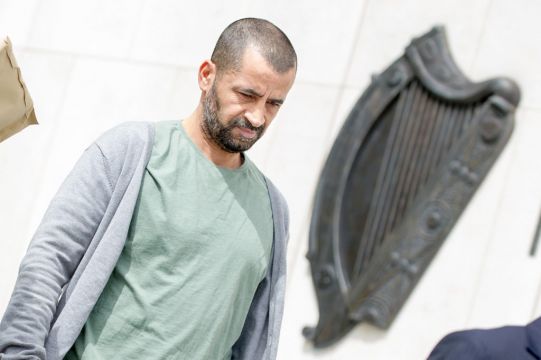A new procedure will have to be put in place for revoking Irish citizenship as a result of a Supreme Court decision.
The new process will have to contain appropriate safeguards for those facing the severe consequences of loss of citizenship, including an independent decision maker.
As a result of declarations granted by the five judge court today, Ms Justice Elizabeth Dunne said it is “inconceivable” the Minister for Justice could revoke a grant of citizenship until a new process is in place with safeguards to meet natural justice requirements.
Unconstitutional
The court granted declarations that Section 19.2 and 19.3 of the Irish Nationality and Citizenship Act are unconstitutional because they provide for a revocation procedure which does not meet those requirements.
Under section 19, the Minister for Justice initiates the revocation procedure, ultimately makes the decision whether to revoke or not and is not bound by findings of a three-person committee of inquiry appointed by the Minister.
Last October, the court ruled that procedure to revoke citizenship is unconstitutional on natural justice grounds because an individual facing the severe prospect of revocation must be entitled to a process which provides minimum procedural safeguards, including an independent and impartial decision maker.
The court deferred making final orders until it heard submissions on the scope of those orders.
Damache case
Its finding of unconstitutionality was made in an appeal by Ali Damache, a native of Algeria who became a naturalised Irish citizen in 2008, over an October 2018 notice of intention to revoke his Irish citizenship on the basis of having shown disloyalty to the State.
Mr Damache is serving a sentence in the US after pleading guilty in October 2018 to having conspired to materially assist a terrorist group.
Sunniva McDonagh SC, for Mr Damache, said he pleaded guilty to a conspiracy offence to avoid a 40-45 year prison term. While serving a long term, he has significant ties in Europe and revocation of his Irish citizenship would mean he would be unable to visit his children in France on release, she said.
The Irish Human Rights and Equality Commission, which was involved in the appeal as an assistant to the court on legal issues, argued a high degree of procedural safeguards are required around the Ministerial decision-making to revoke Irish citizenship.
Section 19
In the follow-up hearing last month concerning what orders should be made by the court, Siobhán Stack SC, for the Minster, argued only part of section 19.2, and section 19.3, should be revoked but Ms McDonagh and Siobhán Phelan SC, for the Commission, argued it was necessary to strike down additional parts of section 19.
Giving the court’s follow-up judgment on Wednesday, Ms Justice Elizabeth Dunne said a court should only strike down so much of a statutory provision as is necessary to be struck down in the light of the finding of unconstitutionality in a particular case.
This case was about the adequacy of the procedural safeguards in section 19 before a certificate of naturalisation can be revoked, she said. It was never suggested a power to revoke could not be provided for, that the grounds for revocation were inappropriate or suspect in any way or that the Minister was wrong to trigger the revocation process in this case.
Safeguards
The issue was the process by which revocation can take place and the adequacy of the safeguards provided for in section 19.2 and 19.3 for a person facing possible revocation and the court had found that process “wanting”.
The judge rejected arguments by the Minister that only part of section 19.2 should be struck down and granted declarations that section 19.2 and 19.3 be struck down in their entirety.
It was not necessary, she held, to strike down section 19.1 which contains the ministerial power to revoke and the grounds for such revocation.
Natural justice
Noting the concerns of Mr Damache and the IRHEC that, to strike down section 19.2 and 19.3 while leaving in place section 19.1 could lead to the possibility of revocations taking place with no safeguards, she said it was “manifestly clear” the process provided for in section 19.1 did not provide the procedural safeguards required to meet the high standards of natural justice applicable to a person facing the severe consequences of revocation of citizenship.
The concerns of Mr Damache and the IRHEC could be met by the declarations striking down sections 19.2 and 19.3, she said.
It is “inconceivable” that any contested revocation of a certificate of naturalisation would take place without appropriate safeguards having been put in place, she said.
Other parts of section 19, including section 19.4, which deems that a child whose name was entered on a naturalisation certificate under the Irish Nationality and Citizenship Act 1935 is a citizen, remain in place.







